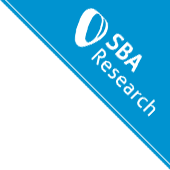Machine Learning & Knowledge Extraction by Topological Data Analysis
organized by Massimo FERRI, Facundo MEMOLI, Neža MRAMOR-KOSTA & Marian MROZEK
This session aims to bring together algebraic and computational topologists with machine learning experts.
Big Data are surely full of texts and of numerical tables, and these are liable of being dealt with by classical mathematical tools available to both the engineer and the statistician. Still, nowadays there is an increasing amount of data of natural origin, which represent a big challenge to classical methods: for example pictures and videos depicting living beings, signatures, biomedical images, sounds, music pieces etc. Analysis, representation, classification and retrieval of such data need the ability to deal with qualitative aspects in a formal, computable way. Topology lacks the rigidity of other mathematics of common use in applications, and makes it possible to formalize qualitative features in computable invariants as, for instance, in Algebraic Topology.
Sometimes there is the additional difficulty of adapting the analysis to the particular viewpoint of the observer or to the particular needs of the user. Recent advances in applied topology succeed in taking this into account, by studying suitable functions defined on topological spaces, as is usual in Persistent Topology and in Discrete Morse Theory.
The reciprocal influence of topology and Graph Theory opens the way to fruitful analysis of complex organisms, such as nervous systems of animals, social networks and even artificial neural networks. So there can be a two-way interaction between topology and machine learning: the latter can deal with topological data representations, and topology can investigate models of learning machines.
Topics of interest include, but are not limited to:
- Persistent Topology
- Discrete Morse Theory
- Topological Graph Theory
- Topological Pattern Recognition
- Computational Homology and Cohomology
- Stochastic Algebraic Topology
Accepted Papers will be published in the CD-MAKE Volume of Springer Lecture Notes in Artificial Intelligence (LNAI).
For submission details please proceed to the CD-MAKE authors area

